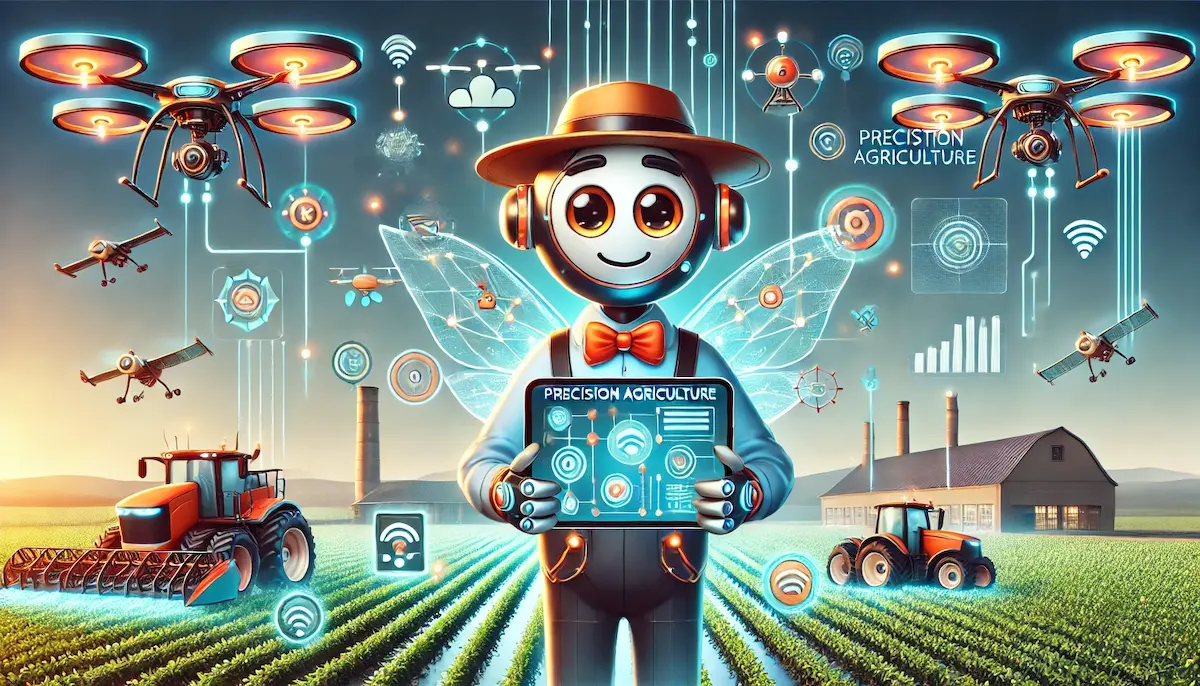Precision agriculture, a modern farming practice, is transforming the agricultural industry by utilizing advanced technologies to optimize crop production and resource management. This approach helps farmers enhance efficiency, reduce waste, and promote sustainability by tailoring farming practices to the specific conditions of each field.
What is Precision Agriculture?
Precision agriculture, also known as precision farming or site-specific crop management, involves the use of technology to monitor and manage the variability in crops and soil within a field. By collecting and analyzing data on soil conditions, weather patterns, crop health, and other factors, farmers can make informed decisions to maximize crop yields and minimize environmental impact.
Key Technologies in Precision Agriculture
GPS and GNSS
Global Positioning System (GPS) and Global Navigation Satellite System (GNSS) technologies are fundamental to precision agriculture. These systems provide accurate location data, enabling farmers to map fields, guide machinery, and monitor crop conditions with high precision.
Remote Sensing and Drones
Remote sensing technologies, including satellites and drones, capture detailed images and data about crops and soil. Drones equipped with multispectral and thermal sensors can detect issues such as pest infestations, nutrient deficiencies, and water stress, allowing farmers to address problems promptly.
Variable Rate Technology (VRT)
Variable Rate Technology enables farmers to apply inputs such as fertilizers, pesticides, and water at varying rates across a field based on specific needs. VRT systems use data from sensors and GPS to adjust application rates in real-time, ensuring that resources are used efficiently.
Soil Sensors
Soil sensors measure various soil properties, including moisture, temperature, and nutrient levels. These sensors provide real-time data that helps farmers optimize irrigation and fertilization practices, promoting healthier crops and reducing waste.
Data Analytics and Artificial Intelligence
Data analytics and artificial intelligence (AI) play a crucial role in precision agriculture by processing and interpreting the vast amounts of data collected from various sources. AI algorithms can predict crop yields, identify potential issues, and recommend optimal farming practices, enhancing decision-making and overall farm management.
Benefits of Precision Agriculture
Precision agriculture offers numerous advantages that contribute to more sustainable and productive farming practices.
Increased Crop Yields
By applying precise amounts of inputs at the right time and place, farmers can improve crop health and productivity. This targeted approach helps maximize yields and ensure that crops receive the necessary nutrients and care.
Enhanced Resource Efficiency
Precision agriculture reduces the overuse of inputs such as water, fertilizers, and pesticides. By applying these resources only where needed, farmers can conserve resources, lower costs, and reduce the environmental impact of their operations.
Cost Savings
Optimizing the use of inputs and improving crop management can lead to significant cost savings. Precision agriculture helps farmers reduce waste, lower labor costs, and increase overall efficiency, resulting in better profitability.
Environmental Sustainability
Precision agriculture promotes environmentally sustainable farming practices by minimizing the use of chemicals and reducing soil degradation. This approach supports soil health, conserves water, and protects natural ecosystems.
Challenges and Future Outlook
Despite its many benefits, precision agriculture faces challenges such as high initial costs, the need for technical expertise, and data management issues. However, as technology continues to evolve and become more affordable, these challenges are likely to decrease.
The future of precision agriculture looks promising, with ongoing advancements in technology expected to further revolutionize farming. Innovations in AI, robotics, and biotechnology will continue to enhance precision farming practices, helping to meet the global demand for food while promoting sustainability.
Blockfine thanks you for reading and hopes you found this article helpful.
